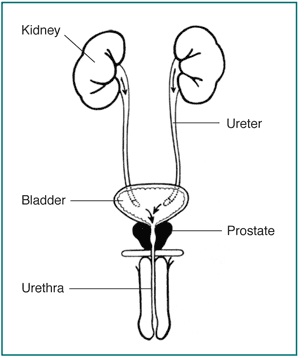Diabetes is the biggest health risk for kidney failure in New Zealand and other parts of the world and hence, regular medical check-up is essential for early detection and treatment, a well-known nephrologist has said.
Specialist Renal Physician Dr David Voss said that more than 200,000 people are affected by renal problems in New Zealand.
He is based in Auckland and is available for private consultation in various parts of the City with prior appointment.
Prominent causes
Hypertension is the second largest cause of kidney disease in India and New Zealand, and along with diabetes, accounts for 50% of kidney ailments, he said.
“Other causes include glomerulonephritis, some hereditary diseases (such as reflux nephropathy and polycystic kidney disease) and kidney stones.
“Kidney stones as a cause of kidney failure are much more common in Pakistan and India than in New Zealand,” he said.
According to Dr Voss, people living in hot and equatorial countries faced a higher risk of contracting kidney stones problems, compounded by limited access to quality or clean water.
He said about one million people around the world receive treatment for kidney failure with either dialysis or kidney transplant.
“Diabetes is more common in Asians and people from the Indian Subcontinent; the rate of kidney failure is probably similar in India and New Zealand,” he said.
Dr Voss said that that apart from diabetes and hypertension, a number of other issues contribute to renal failure. These include smoking, obesity and heart problems.
Obesity epidemic
“New Zealand is the third ‘fattest’ country in the world, after the US and Mexico.
 The obesity epidemic will hit us severely in the decades to come. Developing countries are particularly at risk of this ‘wealthy’ disease, where excess food availability (ready-made meals, fast foods) and high-energy foods (high fat content and energy concentrated foods predominate,” he said.
The obesity epidemic will hit us severely in the decades to come. Developing countries are particularly at risk of this ‘wealthy’ disease, where excess food availability (ready-made meals, fast foods) and high-energy foods (high fat content and energy concentrated foods predominate,” he said.
Dr Voss said that most people do sedentary work, enjoy more leisure and do less physical exercise, all of which increase the risk of contracting the causes that lead to kidney failure.
“People in developing or under-developed countries try to emulate their counter parts in the First World countries. Emulating the latter’s habits could result in higher incidence of diabetes, heart disease, eyesight/blindness, vascular disease with limb amputation, stroke and kidney failure,” he said.
Dr Voss said the diabetes and hypertension were two killer diseases that were found in increasing numbers among the people of Indian origin in New Zealand.
“Chronic kidney disease (CKD) is a debilitating illness and expensive to treat. Many people die without kidney failure treatment. Only about 10% of the world’s population can afford the cost of dialysis. Taiwan is the world leader in dialysis for treating kidney failure,” he said.
The complexity
According to Dr Voss, one of the main problems relating to kidney disease is early detection and treatment.
“There are no symptoms specific to kidney diseases. However, people with a family history of diabetes mellitus, high blood pressure, heart disease or stroke and kidney stones are in the high-risk group. People with kidney stones, urinary infections or glomerulonephritis are also vulnerable,” he said.
Apart from regular medical check-up, it is important to keep blood pressure under control, avoid kidney toxins such as anti-inflammatory drugs, some ‘Over-the-Counter’ medicines (purchased without prescription) and herbal and cultural therapies.
Enlarged prostate
Dr Voss said that men over the age of 50 are more likely to get prostate gland enlargement, and this may result in the gland becoming so large that it would blocks bladder drainage and result in kidney failure.
“It is important for these men to have regular checks of their prostate gland for both size (to ensure not getting so large it may block urine drainage/flow) and the possibility of prostate cancer, which involves physical examination by a doctor and a blood test.”
“Symptoms of prostate enlargement include getting up at night to pass urine; poor flow, difficulty getting the flow of urine started, dribbling of urine flow after going to the toilet,” he said.
Health Insurance
While New Zealand can boast of an efficient public health system, the pressure on specialist treatment envisages long delays for diagnosis and treatment. The importance of health insurance therefore cannot be over-emphasised. Insurers and their agents offer a number of options that would suit individual needs and income. There are many qualified and experienced brokers capable of structuring individual policies that would become useful someday.






